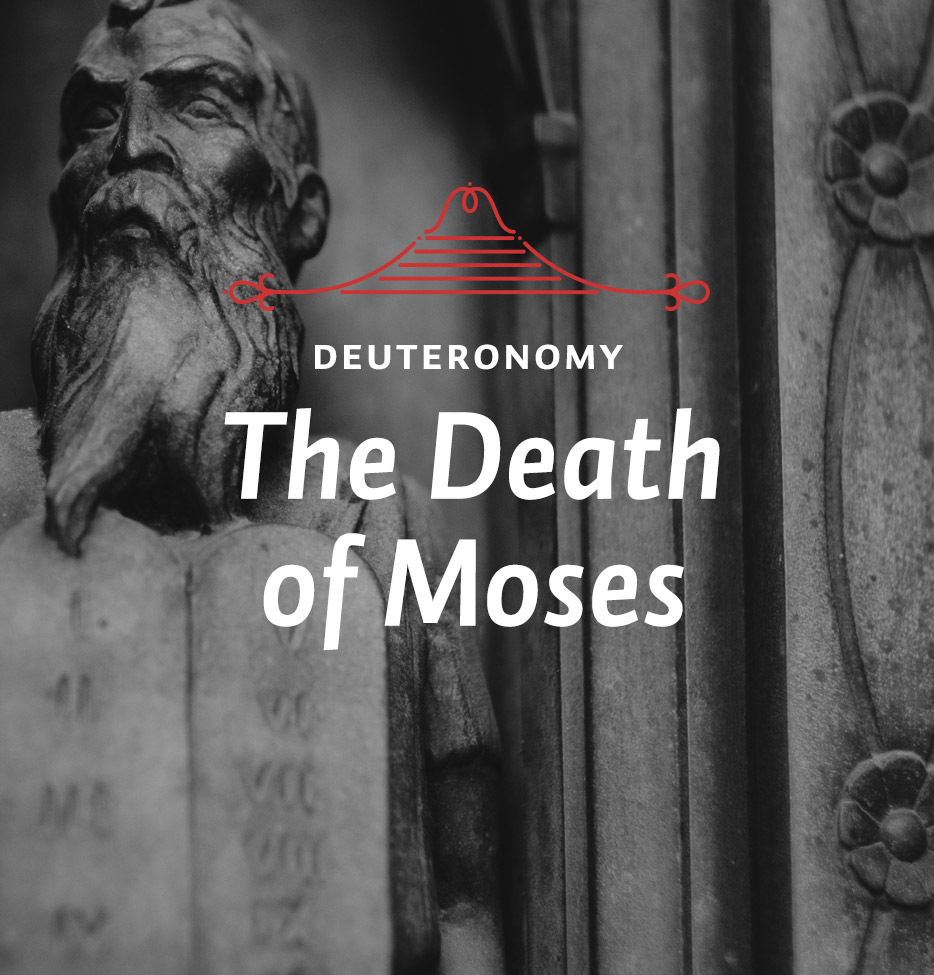Deuteronomy 33:26-29 are the very last words of Moses, the author of more biblical material than any other single human being. In these last words he confesses that there is no god like God. Isn’t that wonderful? Now if Moses could praise God like that, shouldn’t we do that too? We sing, “O, for a thousand tongues to sing my great Redeemer’s praise,” and yet the one tongue we have is so often silent. Moses spoke of the glory of God. May we do it too, and do it more and more as we go on in life and experience more and more of His glory and His grace. If we do that in life, then when our time comes to die, we’ll be able to testify of His grace and His glory even then.
Well, the end has come, and in chapter 34 Moses ascends Mount Nebo to be gathered to his people. And yet before he dies, God comes to stand behind him, as it were, and points out all the features of the land to which God has led the people, and which He had promised beforehand to Abraham, Isaac, and Jacob. The Lord showed Moses the whole land, “from Gilead to Dan, all of Naphtali, the territory of Ephraim and Manasseh, all the land of Judah as far as the western sea, the Negev and the whole region from the Valley of Jericho, the City of Palms, as far as Zoar” (vv. 1-3).
There is a measure of sadness here because Moses has brought the people to the very threshold of the land and yet God again says he is not going to enter it. But there is joy and satisfaction, too. Moses had led the people for forty years, he had brought them to the very edge of the land, and he had been faithful to the end. He had done all the things that God had given him to do. Having completed the work God gave him to do, and then making his leadership transition to Joshua, he lay down to rest. Like the apostle Paul, Moses could have said, “I have fought the good fight, I have finished the race, I have kept the faith. Now there is in store for me the crown of righteousness, which the Lord, the righteous Judge, will award to me on that day—and not only to me, but also to all who have longed for his appearing” (2 Tim. 4:7-8). Are we going to be able to say that when we come to our last day? The time to prepare for it is right now.
Deuteronomy 34:7 informs us, “Moses was a hundred and twenty years old when he died, yet his eyes were not weak, nor his strength gone.” This may just be a passing reference, but it strikes me that since God has brought him now to the very border of the land and taken him up the mountain, God preserved his eyesight so he could see it. It would be natural for a man of 120 years old to begin to have failing eyesight, but God was gracious to him to the very end. He is not going to enter the land, but he is able to see it.
As we conclude our study, I want to try to evaluate Moses as a leader. We’ve seen him in all kinds of situations. We’ve seen him alone with God on the mountain. We’ve seen him before Pharaoh. We’ve seen him before the masses of the people. We’ve seen him face down angry people. We’ve observed him speaking to the mighty and to the lowly. We’ve seen him angry, and we’ve seen him bowed in fervent prayer. He was a man with a sinful nature, and yet a great man too.
What is it that most stands out about him? How should we remember him, his achievements, and the character that God developed in him? He was a man of faith and of prayer. He was humble and courageous. We talked about these four categories in the first chapter. Throughout this study, our appreciation of him in those areas has been enhanced. We’ve seen Moses exercise faith in God in the most trying circumstances. He prayed effectively and at all times. We know he was a great man yet he remained humble right to the end. And nowhere has he shown greater courage than in the manner in which he has delivered his final charges to the people, and then with a firm step and upward glance he ascended Mount Nebo where he is to die.






